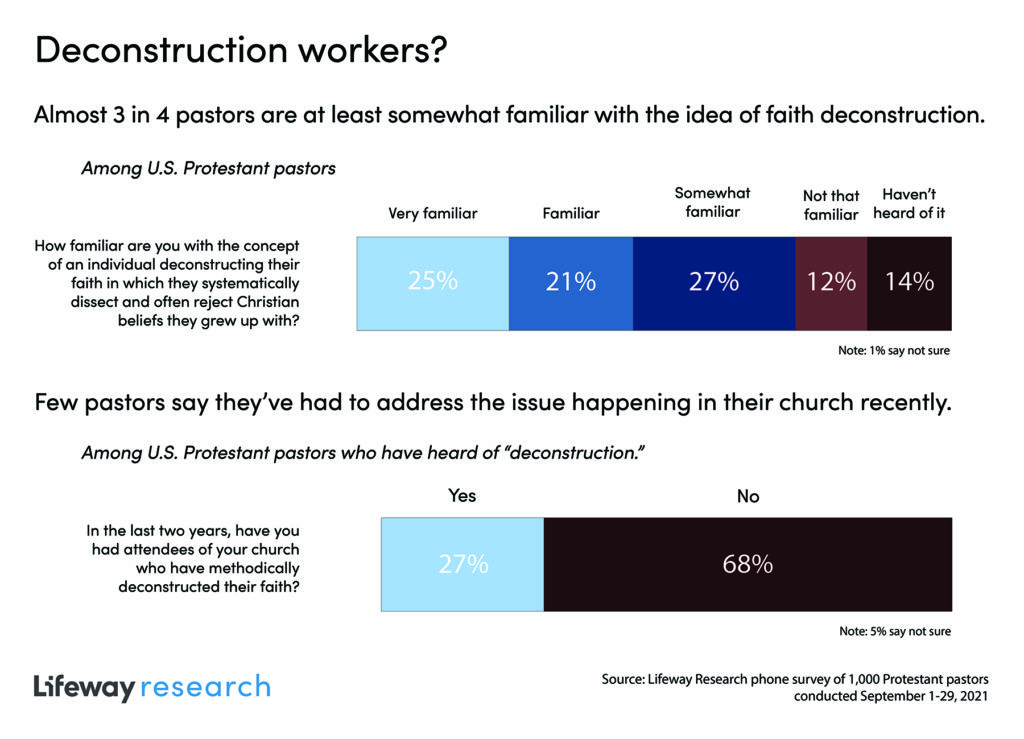
Deconstruction. It’s all the rage. Haven’t you heard? It’s sexy! Well, it’s at least a pretty hot topic on Christian corners of social media. But if you needed another reminder that Twitter and Instagram aren’t real life, get a load of this new study from LifeWay Research. Their survey of Protestant Pastors in America found that while most pastors say they’re familiar with the concept, few really see it happening.
According to the survey, about three out of four pastors are at least somewhat familiar with deconstruction which is here described as “the concept of an individual deconstructing their faith in which they systematically dissect and often reject Christian beliefs they grew up with.” That may not be the most charitable definition of deconstruction we’ve ever read but OK.
Twenty-five percent of pastors surveyed say they’re very familiar with the concept while 21 percent say they’re familiar with it and another 27 percent say they’re somewhat familiar. Only 12 percent say they’re not that familiar and 14 percent have never heard of it.

Among pastors who have at least heard of it, it doesn’t seem to be a major factor in their ministry. A little over one in four (27 percent) say they’ve seen people in their church “methodically deconstruct” their faith at some point in the last two years. Sixty-eight percent say they haven’t.
So it’s a known entity but, to be fair, deconstruction is a broad and challenging term with a lot of different connotations attached to it.
That’s a pretty low number compared to how much attention the process commands on social media, and that wasn’t lost on the people in charge of the study. Scott McConnell, executive director of Lifeway Research, wrote that “[d]espite the growing awareness among pastors, it may be easier to find people in the midst of deconstructing their faith on social media than within churches.”
That’s probably true, since social media tends can amplify fringe voices. That can be a bad thing, as you’ve probably noticed. But it can also be a very good thing, giving voice to people who would otherwise struggle to speak up to established institutions and communities. We’ve seen that happen with the #MeToo movement and Black Lives Matter, and deconstructing Christians can use social media to make their voices heard in a way that they wouldn’t necessarily be able to without it.
There are a lot of reasons Christians might be more comfortable talking about deconstruction online than they would in the Church itself. In fact, many of the people deconstructing are doing so exactly because they’ve struggled to be heard in their churches. So just because pastors aren’t aware of anyone in their church who’s deconstructed, doesn’t mean it isn’t happening.
It’s also important to remember that “deconstruction” doesn’t mean “deconversion.” Let’s repeat that again: “deconstruction” is not the same as “deconversion.” That, as Nish Weiseth pointed out to RELEVANT recently, is confusing a possible endpoint with the actual process. Deconstruction can lead to a lot of different chapters in a spiritual journey, from a slightly to a dramatically different faith (to, sometimes, no major change at all).






















